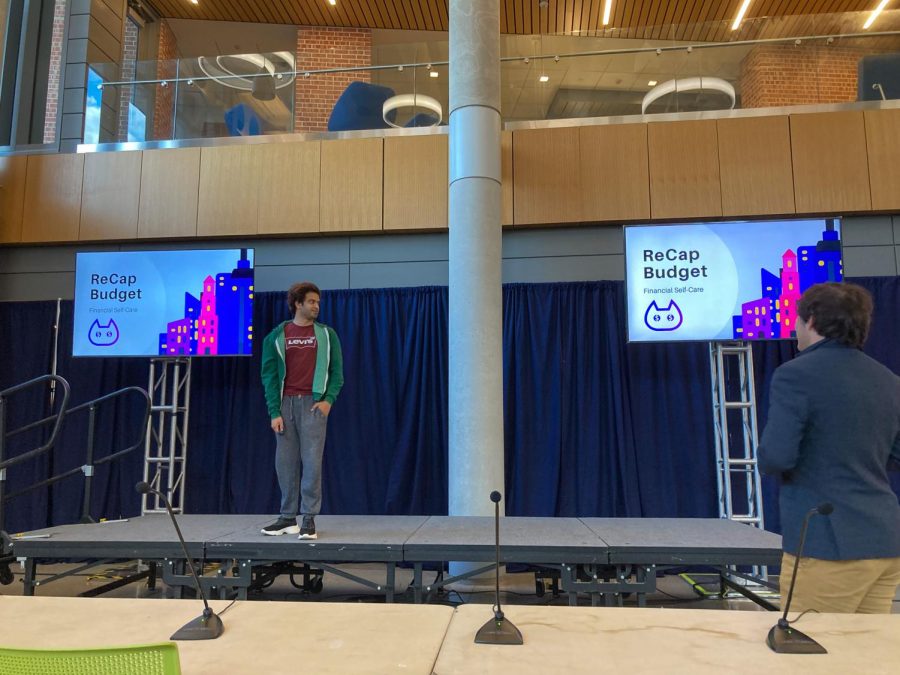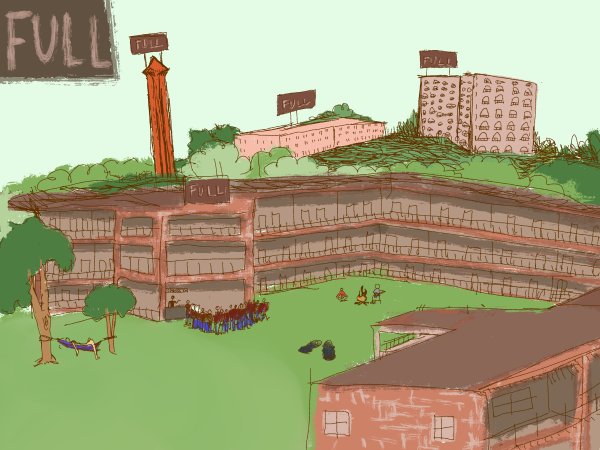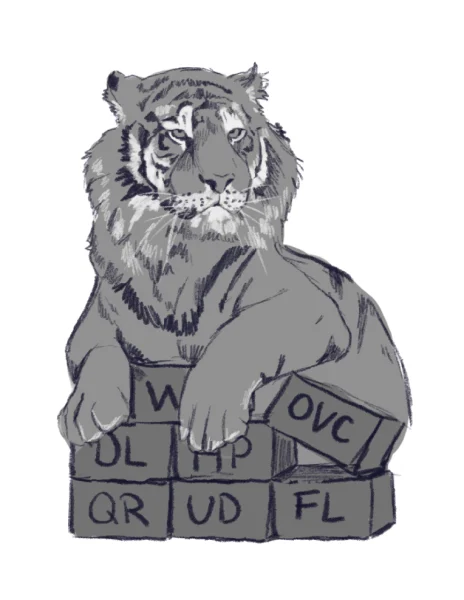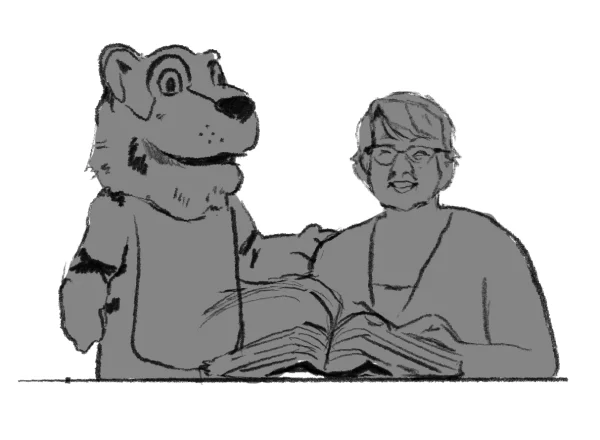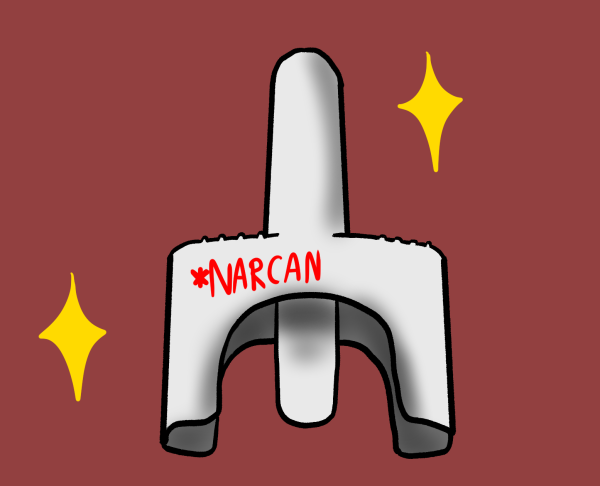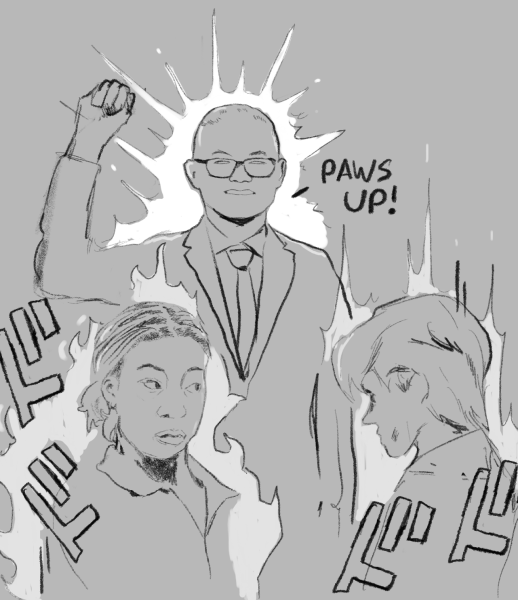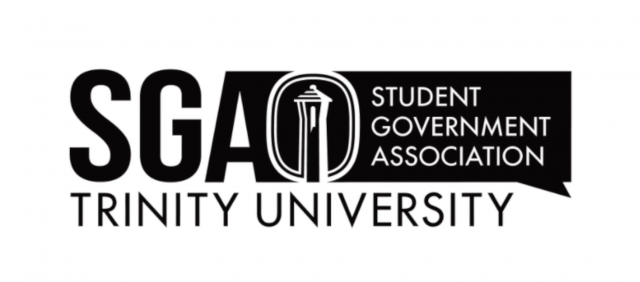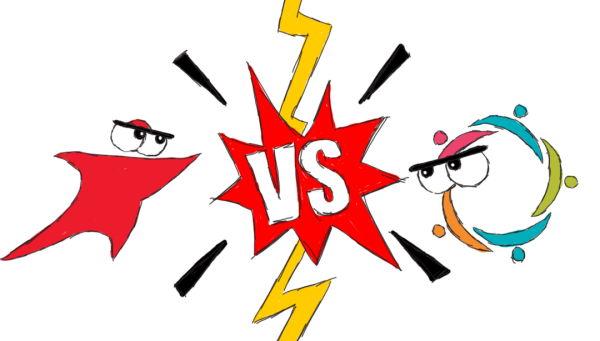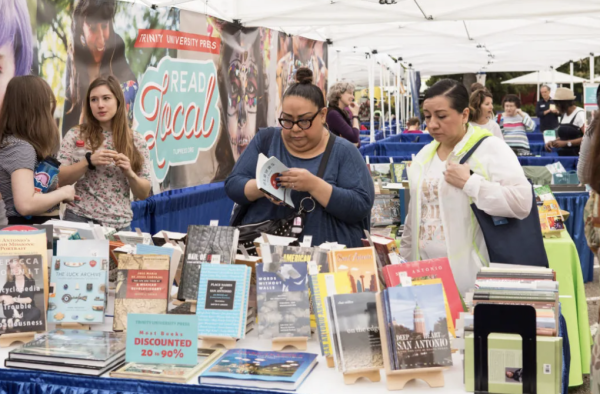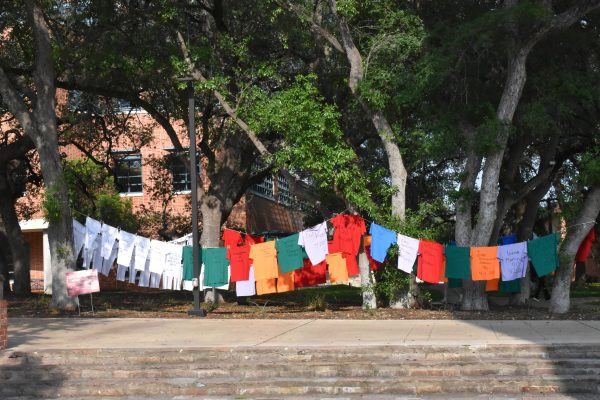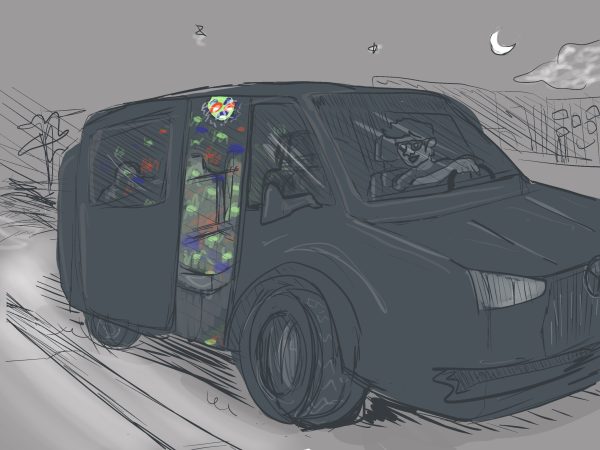Stumberg Venture winners: where are the teams now?
The 2022 winners use their prize money to continue building up their companies
Photo Courtesy of Max Hightower
Juniors Ashwin Ramesh and Joey Hersh look upon the stage where they had competed.
This past October, the judges at the eighth annual Louis H. Stumberg Venture competition strayed from tradition and announced two winners, splitting the prize. Range Rehab and ReCap Budget both received $25,000, as well as extra resources and experience from the competition itself. Since then, both teams have continued to delve into their start-ups.
The group Range Rehab, developed by students Neha Kapur, Andrew Koob, AJ Bishop and Marriana Sayen, created a physical therapy device to aid in rehabilitation after injury or surgery. Koob, recent political science graduate, described how his group has grown their business since the competition ended.
“We’ve started talking with manufacturers, supplying different parts of the device and then finalizing the design to get it ready to take to market,” Koob said. “We’re going to go full-time really soon, so we’re going to use the money to maintain that until our sales are able to pay us. … [We’re] also using it to build up our inventory and continue a few last prototype things.”
The team’s project was virtually complete by the time it reached the judges, so they mainly focused on bringing their product to market. Someone still has to make that happen though, which is why Koob made a change to his career plans.
“Instead of looking for a job, I just kept working on this, so it’s all or nothing,” Koob said.
The other winning company, ReCap Budget, created an app that helps people make more financially-conscious decisions while shopping and have been working with some tweaks to their original idea. Max Hightower, junior business analytics and technology major and co-founder of ReCap, discussed the steps the group has taken to expand their start-up.
“We have released our beta [since the competition]. We’re currently going through with testing for that,” Hightower said. “We’ve moved into our office downtown. We’ve actually expanded our board of advisors.”
However, because their software program was competing against a patented medical device, ReCap Budget had to make some short-sighted decisions before the competition. They’ve since been patching these holes up, as Joey Hersh, junior computer science major and co-founder of ReCap, described.
“Obviously when there’s a massive amount of time and pressure and high stakes, you end up cutting a lot of corners,” Hersh said. “A lot of [the progress we’ve made] has been kind of going back and cleaning things up.”
Aside from their general progress, ReCap Budget has mapped out how they plan to use the money very carefully, mostly when it comes to updating the programming, according to Hightower.
“I have a spreadsheet for that,” Hightower said. “We aren’t all-knowing in terms of the computer science realm, and so the majority of the money is going toward development.”
They’re also looking at how to remind people to use the app when they go shopping. With the prize money and continued dedication of the group, Hightower explains that they plan to implement “geofencing.”
“One thing we’re … excited for is using ‘geofencing’ to send an alert, like, ‘Hey, we notice you’re walking into a Target … You can improve your habits by using the app,” Hightower said.
The winning start-ups continue to grow with full force, and the co-founders of ReCap give much of the credit to the competition itself. Hightower recounted the second chance ReCap got during the seed round.
“We did not know what we were doing going in. … The judges sat us down and were like, ‘Look, we think your idea is a mess, but we like you as a group,’” Hightower said.
Without Stumberg, these entrepreneurs would be without a project, and group members like Koob would likely be out searching for a job, rather than improving the Range Rehab device. Hersh, too, thanked the competition for furthering their entrepreneurial skills.
“The competition is a really, really unique environment to build something like this out,” Hersh said. “You have every resource you could possibly ask for.”
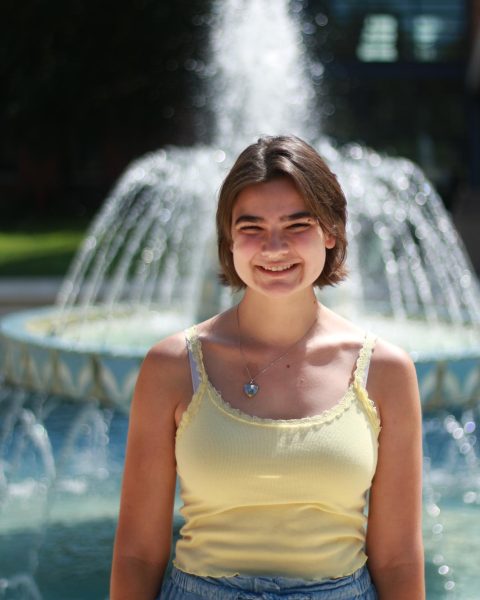
Hi! My name is Samara Gerstle (she/her), and I’m the news section editor for the Trinitonian this year! I’m a sophomore, and this is my second year...

